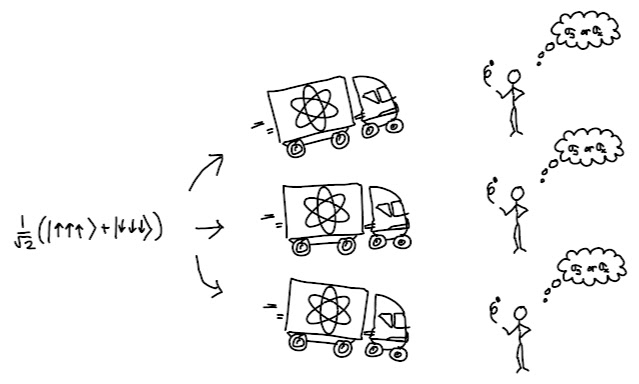An EPR circuit diagram

It has occurred to me that the cartoon I drew two days ago will appear to most people as absurd: Alice measures one half of an entangled pair and instantly splits into two versions of herself! Bob measures the other half and also splits, but each Alice is paired with one of the Bobs in such a way that, should they meet later to discuss their results, everything remains consistent. Yet if you replace Alice and Bob with two qubits - to get a quantum circuit like the one below - no quantum computing expert would find this outcome absurd. The Einstein Podolsky Rosen experiment in circuit form with non-classical Alice and Bob Alice is qubit q0 and Bob is q3 . Qubits q1 and q2 are entangled into the Bell state $(\lvert 01 \rangle + \lvert 10 \rangle)/\sqrt 2$ and then q1 is shared with Alice, and q2 with Bob. In the standard (collapse-based, non-multiversal) description Alice and Bob measure q1 and q2 , collapse the q1q2 wavefunction, and find that one gets 0 while the...

